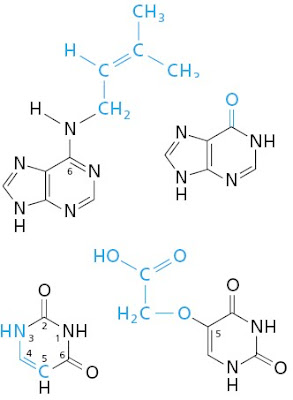A typical large university is divided into several faculties like law, medicine, engineering, arts & humanities, science etc. Each faculty has a Dean who is head of the faculty. Large faculties contain many departments; for example, a faculty of science might have departments of physics, geology, chemistry, and biology. Each department has a chair who is responsible for the administration of the department and for making decisions about hiring, firing, promotions, salary increases etc.
My department is the Department of Biochemistry in the Faculty of Medicine. The position of departmental chair is a five year appointment that is renewable once for a total of ten years. The ten years are up for our current chair so we have to find a new one. This is always a traumatic time for a university department.
The process begins with an addvertisment that's placed in prominent science journals and distributed to various other departments in Canada.
Chair, Department of BiochemistryThe applications are reviewed by a search committee chaired by the Dean. Other ex officio members are; a Vice-Dean of the Faculty of Medicine, a representative of the Graduate School, and the chair of a cognate department. The committee has an undergraduate from our department and a graduate student in the department. In addition, there are seven professors from our department on the committee. The departmental representatives are split between those in the academic core (on campus) and those who are employed by hospital research institutes but have an academic appointment in our department.
University of Toronto, Faculty of Medicine
Toronto, ON
Posted: December 5th, 2011
Applications are invited for the position of Chair, Department of Biochemistry, Faculty of Medicine, University of Toronto, for a 5-year term on or before January 1, 2013.
The Department of Biochemistry at the University of Toronto is a diverse and highly-productive department with a broad range of research areas including protein structure and folding, cell biology, computational biology, and genomics/proteomics. The department has 60 faculty members located at the university’s St. George campus, The Hospital for Sick Children, Princess Margaret Hospital, Mount Sinai Hospital, and other sites in the University of Toronto community. The department is an important component of the University of Toronto academic health science complex, which is among the largest in North America. The department offers programs leading to MSc and PhD degrees, as well as a strong undergraduate program in biochemistry.
The University of Toronto academic health science complex is among the largest in North America. The Faculty of Medicine (http://www.facmed.utoronto.ca) and its nine fully-affiliated hospitals receive over CAN $700 million per annum in research funds.
In addition to a record of academic excellence, the successful candidate will possess outstanding leadership, administrative management, and communication skills to direct a geographically-dispersed department. The individual will bring entrepreneurial vision and execute strategies to enable the Department to build and to sustain effective partnerships. Candidates should have a track record of successful and innovative leadership in education and research. The successful candidate should be eligible for tenured academic appointment at the rank of full professor in the Department of Biochemistry. The next Chair must have the vision and ability to take the Department of Biochemistry to a new level of international recognition and achievement.
Applications consisting of a letter of interest and CV may be submitted online at www.jobs.utoronto.ca/faculty (Job # 1101059) or by sending to:
Prof. Catharine Whiteside, Dean
c/o Anastasia Meletopoulos, Academic Affairs Specialist
Office of the Dean, Faculty of Medicine, University of Toronto
Room 2109, Medical Sciences Building
1 King's College Circle
Toronto, Ontario M5S 1A8, CANADA
Fax: 416 978 1774
anastasia.meletopoulos@utoronto.ca
The closing date for this position is January 31, 2012, or until filled.
For detailed information on the department, visit its Web site at http://www.biochemistry.utoronto.ca.
The University of Toronto is strongly committed to diversity within its community and especially welcomes applications from visible minority group members, women, Aboriginal persons, persons with disabilities, members of sexual minority groups, and others who may contribute to the further diversification of ideas. All qualified candidates are encouraged to apply; however, Canadians and permanent residents will be given priority.
After reviewing all the applications, the search committee draws up a short list of suitable candidates. These candidates are then invited to visit the department and give a seminar on their work. After the seminar they meet with members of the department, faculty, staff, and students in a 45 minute forum where we can ask questions.
This is the stage we're at right now. The candidates will be arriving in a couple of weeks. We have two from Toronto and two from other cities in Canada.
During their visit, the candidates meet with the search committee where they will be asked a series of prepared questions. Each candidate will be asked the same questions. After all four candidates have been interviewed, the search committee will make a recommendation to the Dean. The Dean is not obliged to offer the job to the recommended candidate but it would be highly unusual if she were to ignore the recommendation by the search committee. The committee may decide that none of the candidates are suitable for the job.
Once a candidate has been recommended, the Dean negotiates a deal that the candidate is willing to accept. (Salary, research space, and various benefits to the department are usually on the table.) Negotiations can fail if the demands of the candidate aren't met. In this case, the offer will go to the second choice of the search committee, if there is one.
How does this process compare to other departments and universities?









